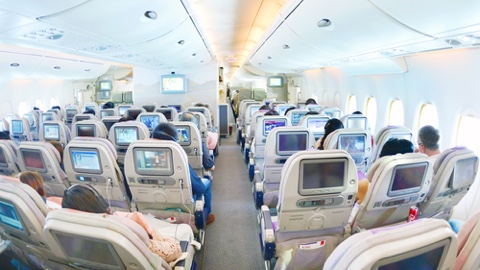
A British consortium consisting of Airbus Group Innovations, Honeywell UK, National Physical Laboratory, and SME Gas Sensing Solutions Ltd has partnered to develop cabin air sensor technology and air management technology to improve passengers’ cabin experience and also allow for fuel savings of up to 2000 liters (~ 528 gallons) on long haul flights. Increased CO2 levels requires changing the air by pumping low-pressure air in from outside the aircraft, then pressurizing and warming it for the cabin. This energy comes from burning aircraft fuel, so the aim of this project is to monitor the level of CO2 in the cabin to match the air change to what is actually required.
The U-CAIR (UK ATI Cabin Air) project uses GSS’s sensors which measure how much light is absorbed by CO2 molecules in the 4.2 and 4.4 microns range in a technique known as Non-Dispersive Infrared (NDIR) absorption. GSS has developed LEDs that are specifically tuned to emit at these wavelengths. The project is funded by a £2.3 million ( ~ $3,000,000 US ) grant from Innovate UK, part of the £3.9 billion that government and industry have pledged to commit to the aerospace sector by 2026.
Calum MacGregor, CEO of GSS, said, “Our unique CO2 sensor technology has been selected for this project because of its industry leading features of low power, accuracy and immunity to vibration. Plus, our sensors are very robust with a long service life, making them the perfect choice for the challenging environment of vibration, pressure changes, etc. in an aircraft where they must work reliably for many years. This project is one of many that we are involved in where we develop a custom solution that precisely meets the needs of the customer.”
